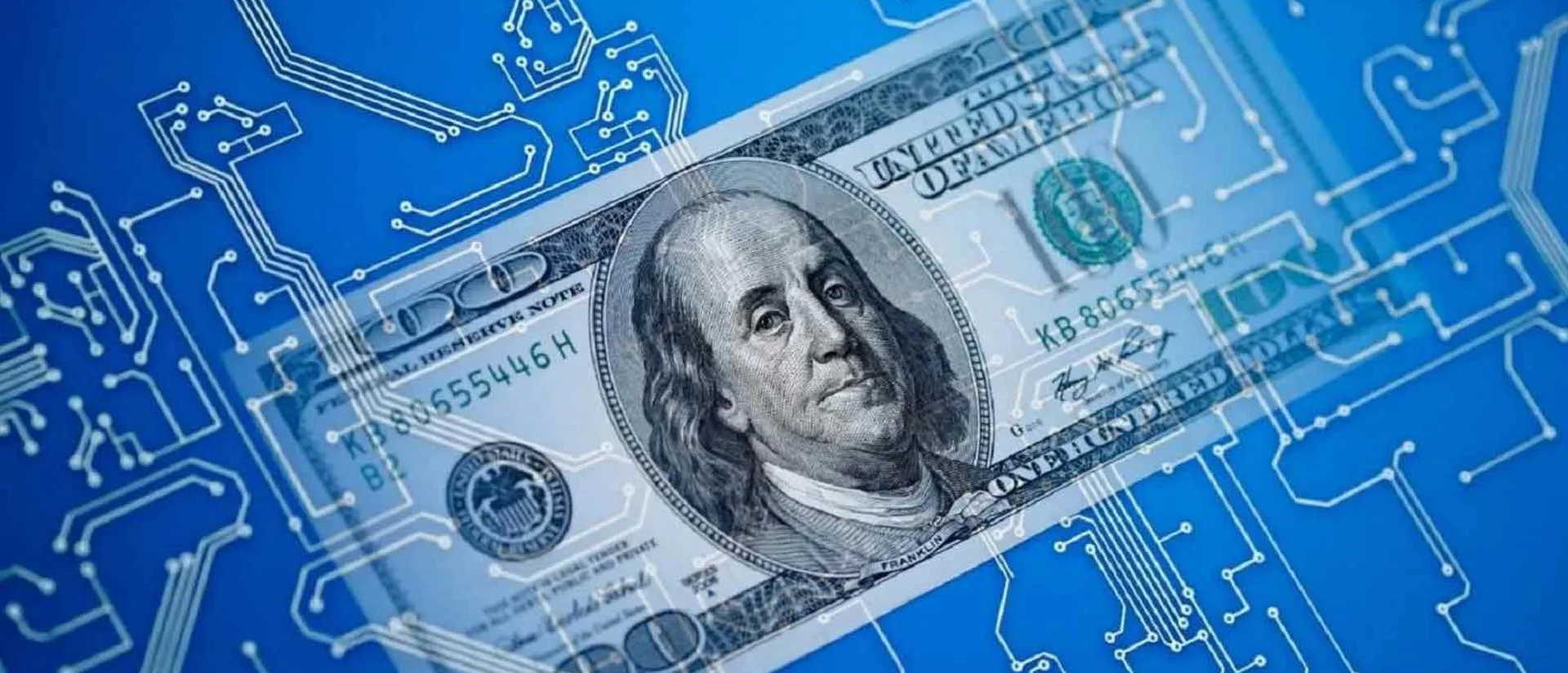by Matt Agorist, The Free Thought Project:

TALLAHASSEE, Fla. (Mike Maharrey) – A bill introduced in the Florida House would ban the use of central bank digital currency (CBDC) in the state.
Rep. Wyman Duggan (R) brought House Bill 7049 (H7049) to the House Commerce Committee on March 28, and the committee voted along party lines to officially introduce the bill. The legislation would explicitly exclude a CBDC from the definition of money in Florida, effectively banning its use in the state.
TRUTH LIVES on at https://sgtreport.tv/
H7049 defines central bank digital currency as a “digital medium of exchange, or digital monetary unit of account issued by the United States Federal Reserve System, a federal agency, a foreign government, a foreign central bank, or a foreign reserve system that is processed or validated directly by such entities.”
Under the Florida Uniform Commercial Code (UCC), “money” means a medium of exchange that is currently authorized or adopted by a domestic or foreign government. The term includes a monetary unit of account established by an intergovernmental organization or by agreement between two or more countries.”
H7049 would add “the term does not include a central bank digital currency” to that definition.
The UCC is a set of uniformly adopted state laws governing commercial transactions in the U.S. According to the Uniform Law Commission, “Because the UCC has been universally adopted, businesses can enter into contracts with confidence that the terms will be enforced in the same way by the courts of every American jurisdiction. The resulting certainty of business relationships allows businesses to grow and the American economy to thrive. For this reason, the UCC has been called ‘the backbone of American commerce.’”
If Florida enacts H7049, the UCC would no longer be uniform.
Duggan introduced the bill after Gov. Ron DeSantis called for a ban on CBDC
“Today’s announcement will protect Florida consumers and businesses from the reckless adoption of a ‘centralized digital dollar’ which will stifle innovation and promote government-sanctioned surveillance. Florida will not side with economic central planners; we will not adopt policies that threaten personal economic freedom and security,” DeSantis said in an official statement.
Since the deadline for individual legislators to introduce bills in the 2023 session has passed, only committees can bring up new bills. On March 28, the House Commerce Committee voted 15-5 to introduce Duggan’s legislation.
CENTRAL BANK DIGITAL CURRENCIES (CBDC)
Digital currencies exist as virtual banknotes or coins held in a digital wallet on your computer or smartphone. The difference between a central bank (government) digital currency and peer-to-peer electronic cash such as bitcoin is that the value of the digital currency is backed and controlled by the government, just like traditional fiat currency.
Government-issued digital currencies are sold on the promise of providing a safe, convenient, and more secure alternative to physical cash. We’re also told it will help stop dangerous criminals who like the intractability of cash. But there is a darker side – the promise of control.
At the root of the move toward government digital currency is “the war on cash.” The elimination of cash creates the potential for the government to track and even control consumer spending.
Imagine if there was no cash. It would be impossible to hide even the smallest transaction from the government’s eyes. Something as simple as your morning trip to Starbucks wouldn’t be a secret from government officials. As Bloomberg put it in an article published when China launched a digital yuan pilot program in 2020, digital currency “offers China’s authorities a degree of control never possible with physical money.”
The government could even “turn off” an individual’s ability to make purchases. Bloomberg described just how much control a digital currency could give Chinese officials.
The PBOC has also indicated that it could put limits on the sizes of some transactions, or even require an appointment to make large ones. Some observers wonder whether payments could be linked to the emerging social-credit system, wherein citizens with exemplary behavior are ‘whitelisted’ for privileges, while those with criminal and other infractions find themselves left out. ‘China’s goal is not to make payments more convenient but to replace cash, so it can keep closer tabs on people than it already does,’ argues Aaron Brown, a crypto investor who writes for Bloomberg Opinion.”
Economist Thorsten Polleit outlined the potential for Big Brother-like government control with the advent of a digital euro in an article published by the Mises Wire. As he put it, “the path to becoming a surveillance state regime will accelerate considerably” if and when a digital currency is issued.
In 2022, the Federal Reserve released a “discussion paper” examining the pros and cons of a potential US central bank digital dollar. According to the central bank’s website, there has been no decision on implementing a digital currency, but this pilot program reveals the idea is further along than most people realized.
Read More @ TheFreeThoughtProject.com




